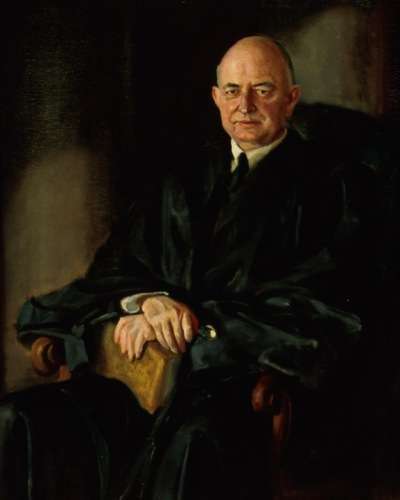The Volokh Conspiracy
Mostly law professors | Sometimes contrarian | Often libertarian | Always independent
Today in Supreme Court History: April 2, 1980
4/2/1980: Justice Stanley Forman Reed dies.

Editor's Note: We invite comments and request that they be civil and on-topic. We do not moderate or assume any responsibility for comments, which are owned by the readers who post them. Comments do not represent the views of Reason.com or Reason Foundation. We reserve the right to delete any comment for any reason at any time. Comments may only be edited within 5 minutes of posting. Report abuses.
Please to post comments


Resigned in 1957 because he thought he was getting too old, yet lived another 23 years, still in possession of his mental faculties. The opposite of what one often sees.
Wikipedia - "For several years, he served as a temporary judge on a number of lower federal courts, particularly in the District of Columbia. He also served in special capacities where judicial experience was needed, such as boundary disputes between states."
Not too shabby.
He had a notable legal career (including serving as Solicitor General) before being named to the court despite not having a law degree. He was the last holdout in Brown v. the Board of Education despite having authored several notable anti-segregation cases.
His bio is anecdotal evidence for excluding the toxic lawyer profession from all benches, all legislative seats, and all responsible policy positions in the executive.
Well, to be fair, Plessy v. Ferguson had been on the books for over half a century, making it something of a super-precedent. Not only had the Court repeatedly reaffirmed the principles of the case, but the great Oliver Wendell Holmes himself extended the precedent to separate whites from asians.
In short, as CNN Supreme Court reporter Ariane de Vogue
put it, this is a "question that goes to the stability of the court as an institution. The justices will also weigh in on how seriously they should consider the very fact that [Plessy] has been on the books for nearly a half-century [sic, more than a half century].
"Put another way: if the court uses cases as building blocks to construct the rule of law, what happens when one block -- put in place in 1973 -- is yanked out?
As much as some of the justices might wish they were writing on a blank slate, they cannot pretend they haven't dealt with Roe in numerous cases over the years."